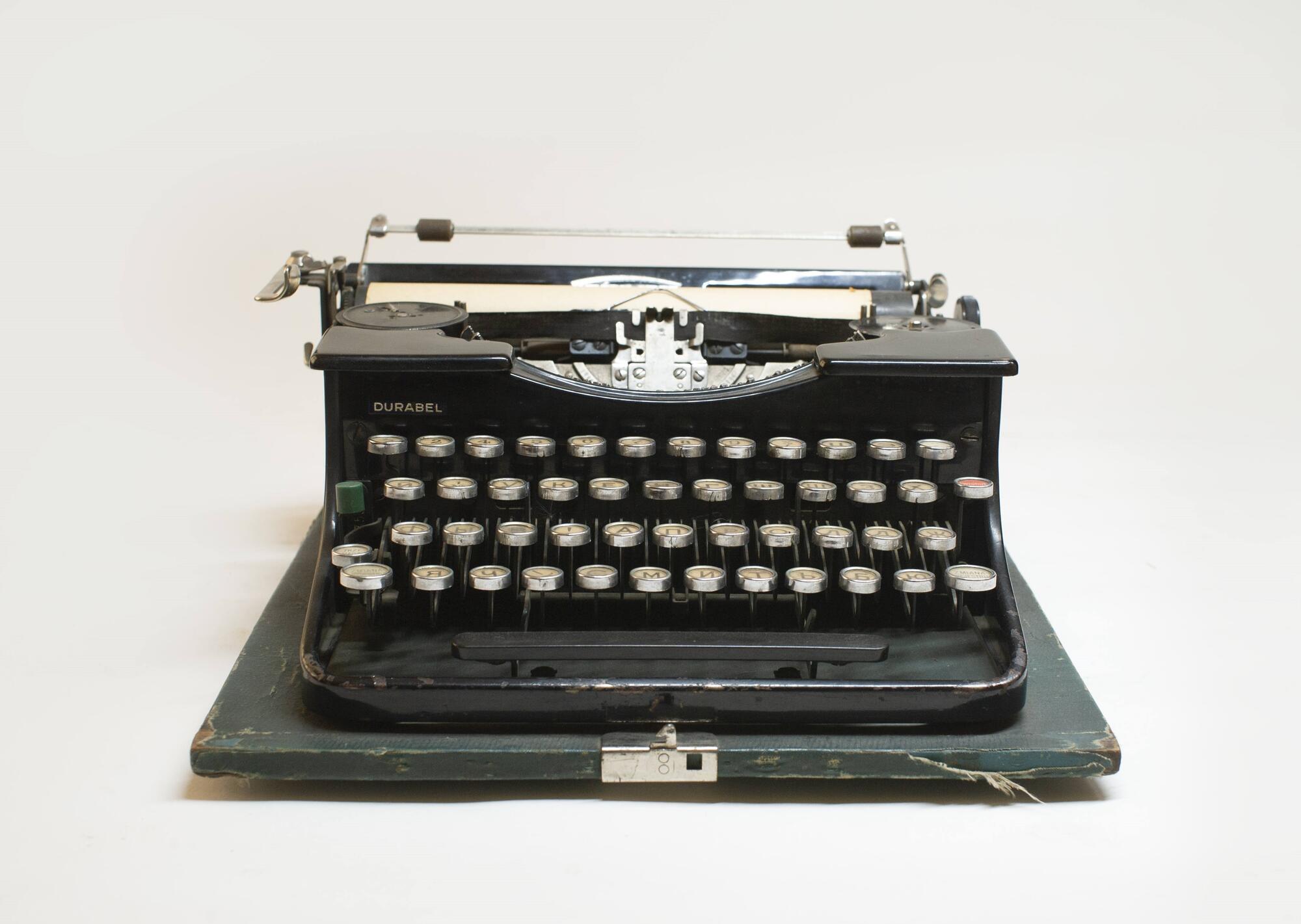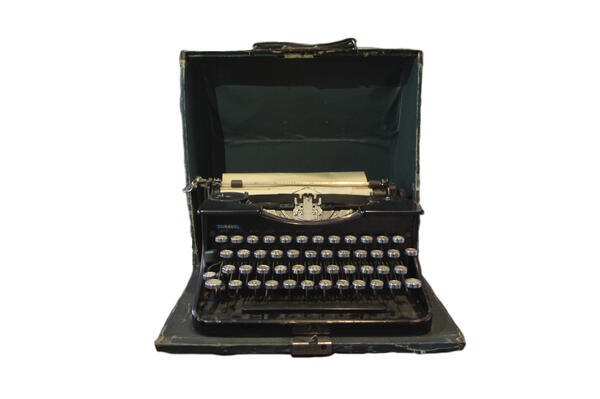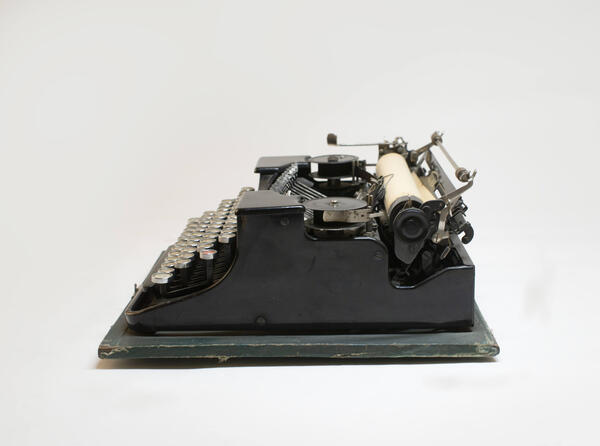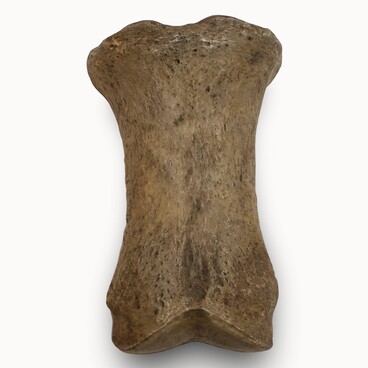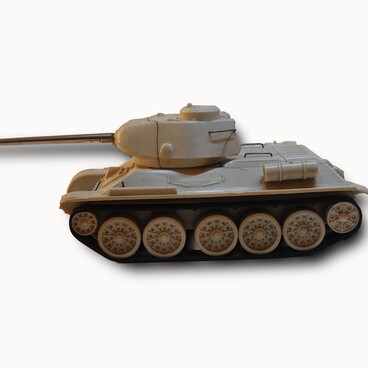In 1944, the Literary Fund presented Pavel Petrovich Bazhov with a typewriter. His close friend, Yevgeny Andreyevich Permyak came up with the idea: he was well aware of Bazhov’s issues with an infinitely increasing volume of writing commitments and his rapidly deteriorating eyesight.
Triumph Durabel typewriter
Время создания
the 1930s — the early 1940s
Место создания
Kraków, Poland
Размер
29x25x12 cm
Техника
metal, plastic, leather, leatherette, assembly, turning
Коллекция
0
Открыть в приложении#2
#10
After all, the transition from seeing to blindness is not a snap, or even, an undeserved blow to the creative work, but something much worse… It even got to the point that I sat for hours with my eyes closed — I accustomed myself to this inevitable fate. Of course, I did not write anything. There is something unpleasant in trying to see a line that you can make out only through a magnifying glass.
The elderly writer often complained about the latter
#7
Initially, Permyak planned to get a subsidy from the Literary Fund to pay for a private stenographer for Bazhov, but Pavel Petrovich was categorically opposed: on the one hand, he was not satisfied with the presence of an intermediary in the dialogue between the author and his text (whether it was an essay, a tale, a letter or an official document), on the other, he did not want to cause a stenographer any discomfort by having her wait for the next line or feel constrained himself.
The typewriter, for Bazhov, did not correlate in any way with the creative process. He jokingly suggested imagining, for example, Alexander Sergeyevich Pushkin typing his immortal lines on a mechanical apparatus. According to Bazhov, using a machine would be absurd and even insulting to literary works.
However, in the end Bazhov gave up, but agreed only to the typewriter. He learned, as he put it, to “tap” slowly and blindly, but at the end of his life he called the typewriter his “mechanical assistant” and could not do without it. He mainly typed letters, articles, reviews, everything for his official duties as a deputy, and also re-typed tales for periodicals and publishing houses.
Pavel Petrovich recalled this process: “I type, of course, slowly, my line wobbles, some signs are missing, but it is better for my addressees, as they do not have to try making out my old man’s handwriting. For me, too, it is probably already better, because the typewriter allows you to type without straining your eyes.”
The typewriter, for Bazhov, did not correlate in any way with the creative process. He jokingly suggested imagining, for example, Alexander Sergeyevich Pushkin typing his immortal lines on a mechanical apparatus. According to Bazhov, using a machine would be absurd and even insulting to literary works.
However, in the end Bazhov gave up, but agreed only to the typewriter. He learned, as he put it, to “tap” slowly and blindly, but at the end of his life he called the typewriter his “mechanical assistant” and could not do without it. He mainly typed letters, articles, reviews, everything for his official duties as a deputy, and also re-typed tales for periodicals and publishing houses.
Pavel Petrovich recalled this process: “I type, of course, slowly, my line wobbles, some signs are missing, but it is better for my addressees, as they do not have to try making out my old man’s handwriting. For me, too, it is probably already better, because the typewriter allows you to type without straining your eyes.”
#12
Triumph Durabel typewriter
#11
Ministry of Culture of the Russian Federation
читать дальшескрыть
00:00
00:00
1x
Triumph Durabel typewriter
Время создания
the 1930s — the early 1940s
Место создания
Kraków, Poland
Размер
29x25x12 cm
Техника
metal, plastic, leather, leatherette, assembly, turning
Коллекция
0
Открыть в приложении
Поделиться
